How Long Can a Dog Go Without Eating?
Living things need food to thrive, develop, and survive. Without sustenance, the health of the creature will deteriorate, eventually causing death—the cruel and slow way.
Your dog is not an exception to this principle and reality. It needs to eat a well-balanced diet regularly to stay healthy and strong.
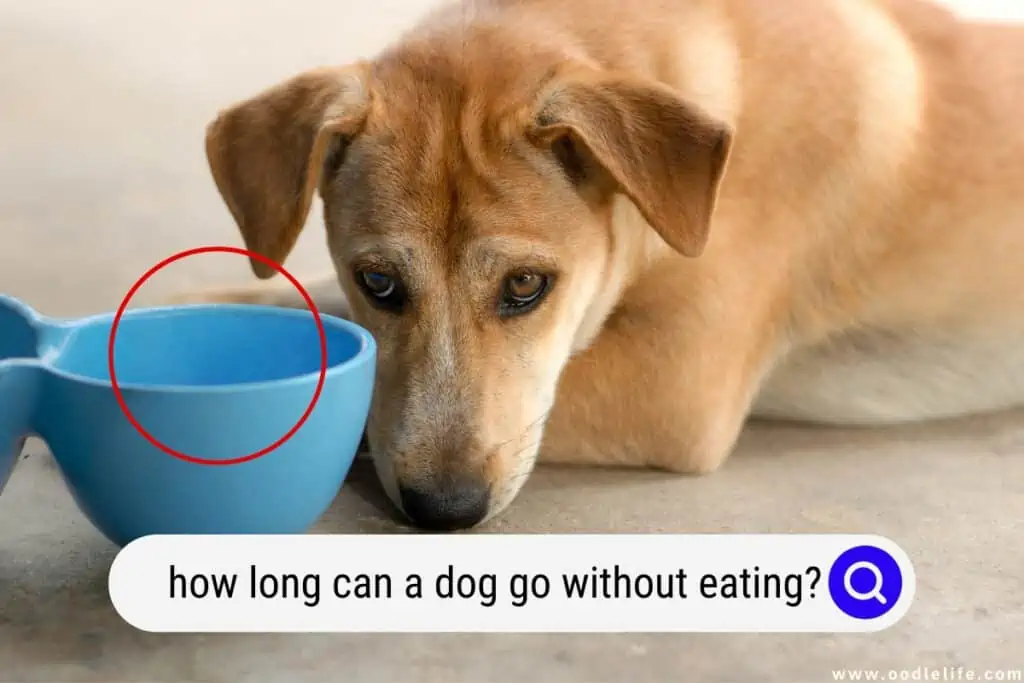
But what if your dog suddenly loses appetite and doesn’t want to eat? This can make you worry as a dog parent, especially if your dog has been missing meals for a day or two already.
Take a deep breath because you have a lot to learn and understand about your dog and why it is not as enthusiastic about food as it was before.
How Long Can A Dog Go Without Eating?
A usually healthy dog can survive and function without eating for five days. Note that this is only applicable if your dog is still drinking adequate water.
Some dogs can even go up to a week with no food as long as they drink water. But at this point, things are already critical, and you shouldn’t let your dog’s condition go this far.
If your dog is not in the best condition in terms of health—if it has already been diagnosed with a medical condition—it may already be in terrible shape by now. After all, it has not consumed any food for five days.
If it is still drinking water, the most it can survive is three days and less if your dog has stopped its water intake as well.
But don’t wait until your dog is in the worst state before consulting your vet. If your dog is not yet eating at all, then a trip to the animal clinic is already imperative as early as the second day.
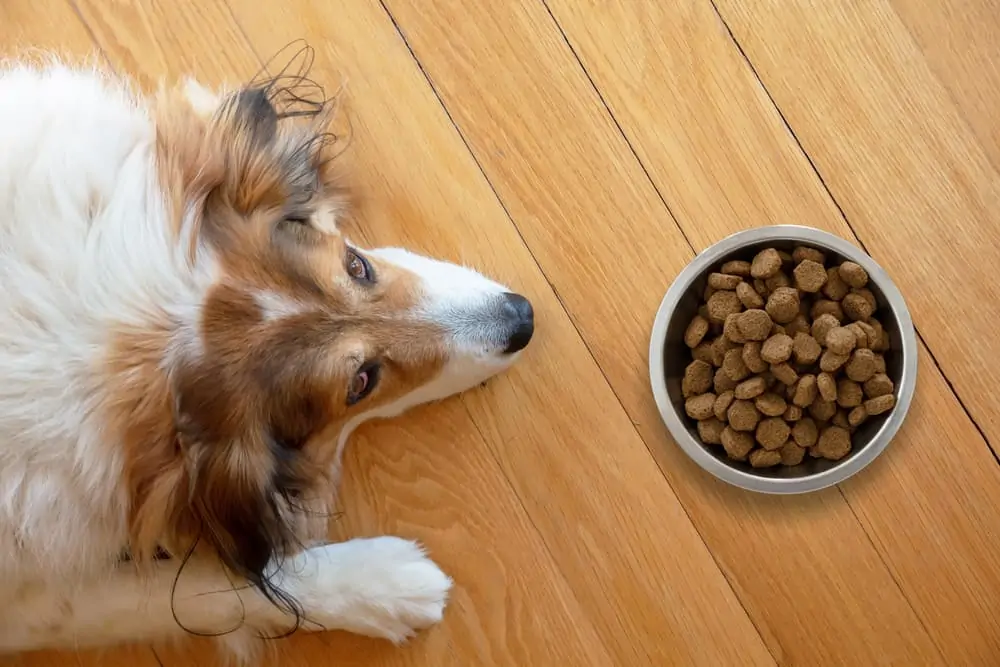
Reasons Why Dogs Won’t Eat
Knowing the reasons why your dog won’t eat is key to resolving the problem. Unfortunately, there is no specific “why” since several factors can cause your dog not to eat.
Going to the vet can help rule out the possibilities, but more often than not, your vet can only make a diagnosis after a period of observation and trial and error.
But to give you some guidance, here are some of the common reasons your dog may stop eating. The sooner you identify what’s causing your dog not to eat, the sooner you can resolve the concern and make your dog eat again.
1. Physical Health Issues
Humans, sometimes, refuse to eat when they are sick. Some dogs who don’t feel good resolve their medical discomforts through fasting, and sometimes, it works.
But if this goes on for more than three days, your dog may be nursing a more serious medical condition.
Some typical health conditions that can cause your dog to lose their appetite are:
- Allergies
- Arthritis (especially for senior dogs)
- Autoimmune disease
- Infections
- Parasites
- Upset stomach
Keep an eye for other symptoms aside from not eating like diarrhea, lethargy, weakness, and vomiting. Any of these symptoms accompanied by a loss of appetite requires you to make an urgent trip to the vet.
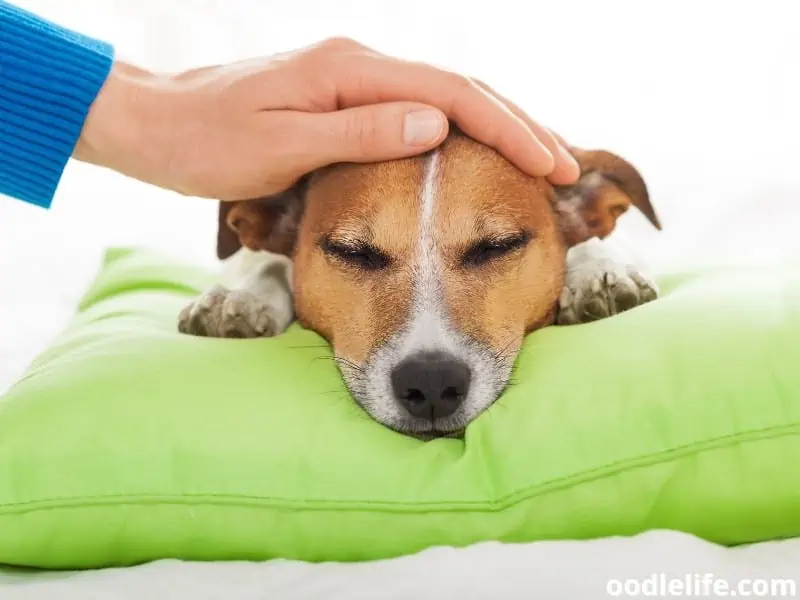
2. Mental Health Issues
Again, like humans, dogs also tend to lose their appetite when they are going through something negative.
Mental conditions like anxiety and depression can cause your dog not to eat. Here are the common indicators that your dog might manifest when going through a stage of emotional hitches.

Anxiety
Your dog may refuse food and stop eating when it is feeling too much stress. Some triggers can be changes in the environment, like a new home, an addition or change—human or another pet—to the family dynamics, separation from a close family member, or temporarily being under the care of strangers.
Aside from not eating, an anxious dog is often skittish, afraid, and aggressive. In general, they are more volatile than usual. Physical symptoms include aversion even to friendly faces, barking unnecessarily, growling, hiding, panicking, running away constantly, trembling, and tucking their tail between their legs.
Depression
Like you, your dog can also get depressed. Depression may be triggered by many things. It can be the lack of mental and physical stimulation, loss of a sibling or another family pet, or being away from a loved one.
A depressed dog not only goes without food for days, but their sleeping habits are also altered. They may sleep all day or not sleep at all.
You will notice that your dog is lethargic and lacks enthusiasm for anything, including play and being outdoors. They become indifferent to the little things they used to enjoy before.
3. Dental And Teething Trouble
Your dog may also stop eating when it is experiencing any oral health issues. The pain and discomfort that your dog feels while chewing can make them turn down food, so the ache doesn’t worsen.
For puppies, teething and losing teeth are also common reasons why food is not a top priority. The pups are simply avoiding the pain of their teeth being in contact with anything, including food.
On the other hand, senior dogs may be suffering from periodontal diseases that can manifest through inflamed and eroded gums and loss of teeth.
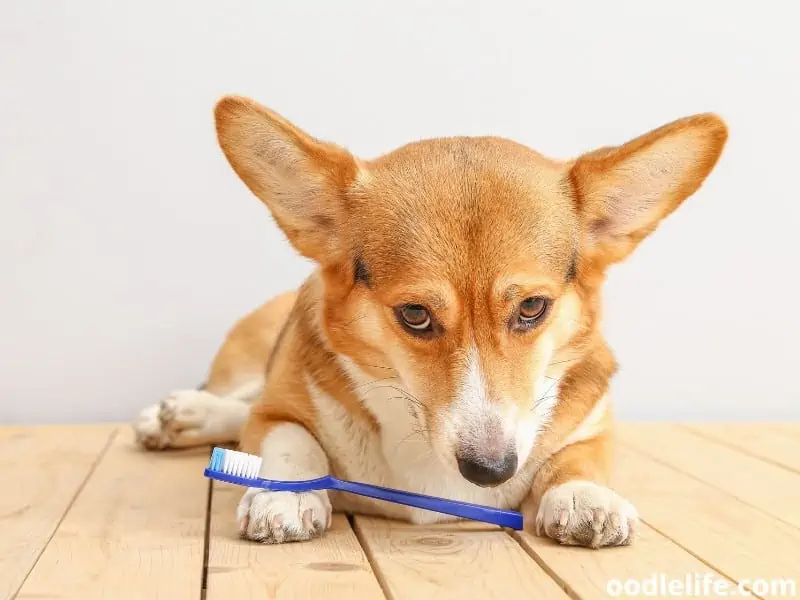
4. Picky Eater
Cats are not the only ones known for being picky. Dogs may also manifest this typically feline behavior and be finicky about their meals.
Food boredom is real in dogs too. They may stop eating because they don’t like their food anymore or they just want something new.
When this happens, you can try a different flavor of food until your dog decides on the food it likes best. This can be an expensive trial and error methodology because you have to keep purchasing a variety of food products until your dog picks one that it wants.
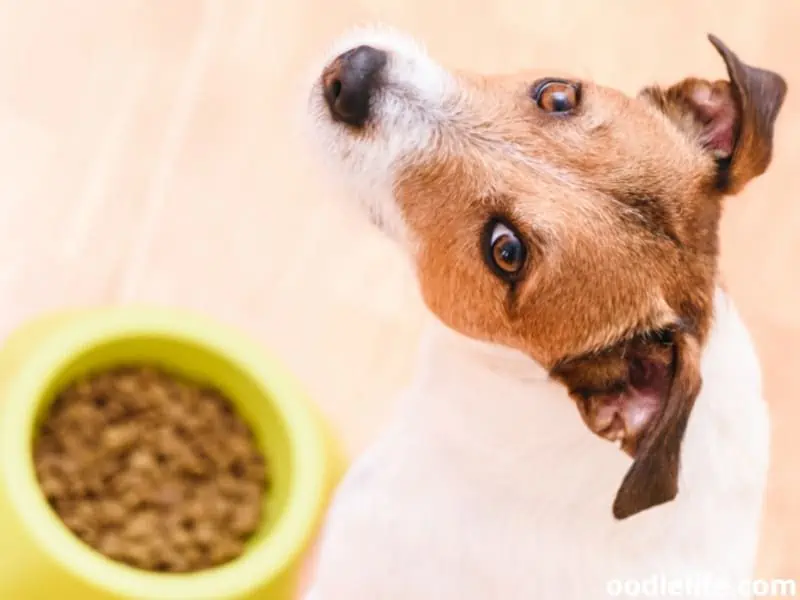
5. Effects of Medications
Again, like humans, if your dog is on medication, loss of appetite can be a side effect.
Appetite suppression is typical if your canine recently started on a new medication, but usually, your vet will give you a heads-up about this possible aftermath. But in case your animal doctor did not discuss this with you, you can get in touch with them to find out what may be causing the change in your dog’s appetite.
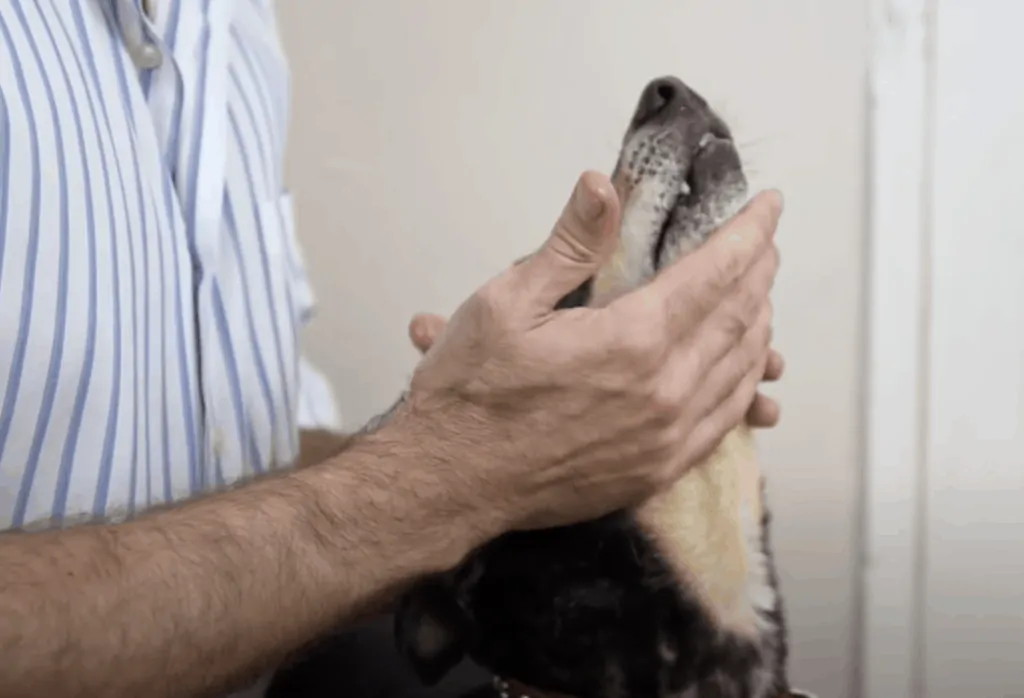
6. Change In Diet
This is another common reason why your dog will not eat. Say, for example, you changed the brand or flavor of your canine’s usual kibble. This disruptive change in their digestive system is not always welcome.
It can result in them being disappointed and frustrated with their meals.
If you must change your dog’s food for whatever reason, like unavailability, suspected allergies, or due to vet recommendation, make sure that the transition is seamless and gradual.
The best thing to do when you alter your dog’s food is to set a schedule similar to this:
- 100% of the old food for the first day.
- 80% of the old food and 20% of the new food on the second day.
- 60% of the old food and 40% of the new food on the third day.
- 40% of the old food and 60% of the new food on the fourth day.
- 100% of the new food for the fifth day.
You can stretch the transition as needed, especially if your dog is extremely sensitive and not too keen on any diet changes.
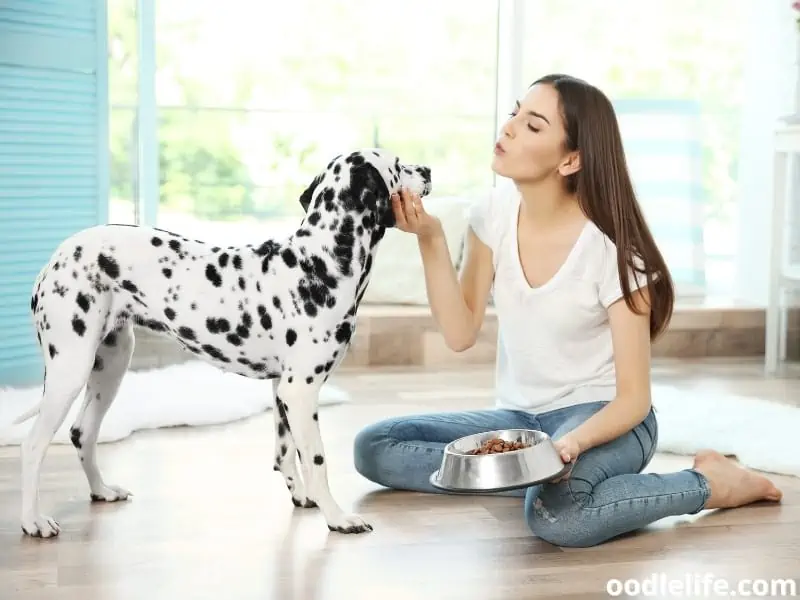
Possible Interventions
After a day or two without food, your dog will definitely become hungry. For your peace of mind, it is best that you consult with your vet once you notice that your dog is not eating. It is critical that you—together with your vet—identify the root cause of this fasting and get your pet interested in food again.
During your vet visit, here are the likely recommendations that your vet may make:
Let Them Be
Yes, your dog relies on you to make decisions on its behalf, but you also have to remember that your dog knows its body better than you do.
At times, they may not eat to instinctively cope with digestive distress or other discomforts. So, let them be for a while.
Your dog’s vet will likely tell you to keep an eye on your dog’s fluid intake to ensure that it remains hydrated. But if, after three days, your dog is still not eating, then it is time to let your vet know.
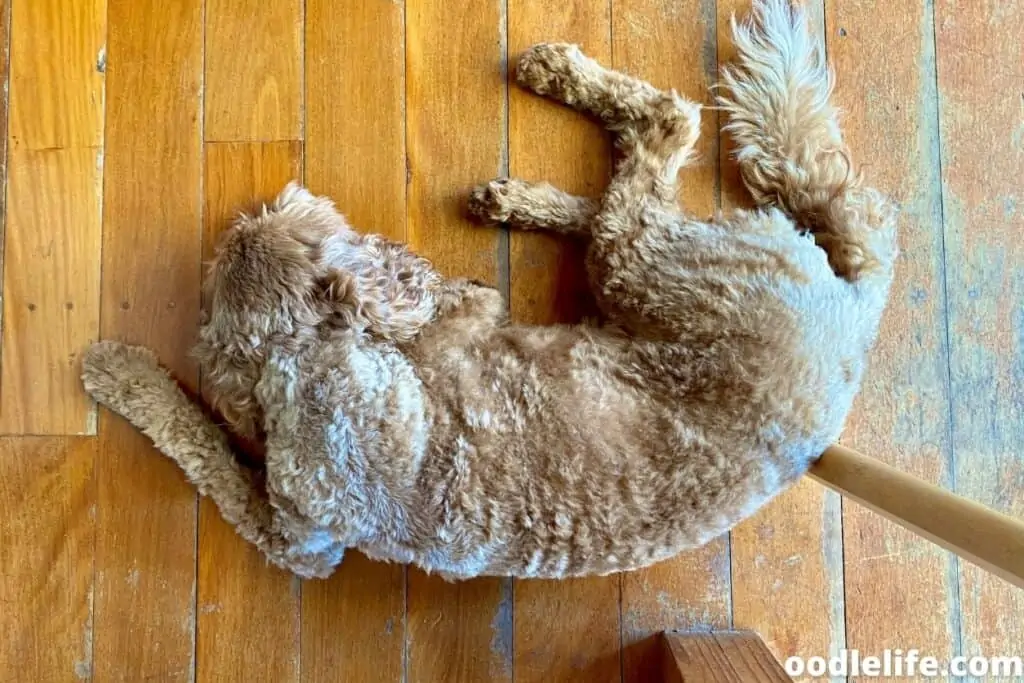
Be There For Them
If your vet rules out that the reason why your dog stopped eating is nothing physically related, then look into their emotions and assess if there were any recent changes in your home’s dynamics.
Encourage your dog to eat by offering different kinds of treats while acknowledging their emotions. Spend more time with your dog to comfort and reassure them that they have their human pack’s presence and love.
Go on walks and play with your dog, and on lazy afternoons, allow some cuddle time while you are reading a book or watching your favorite television series.
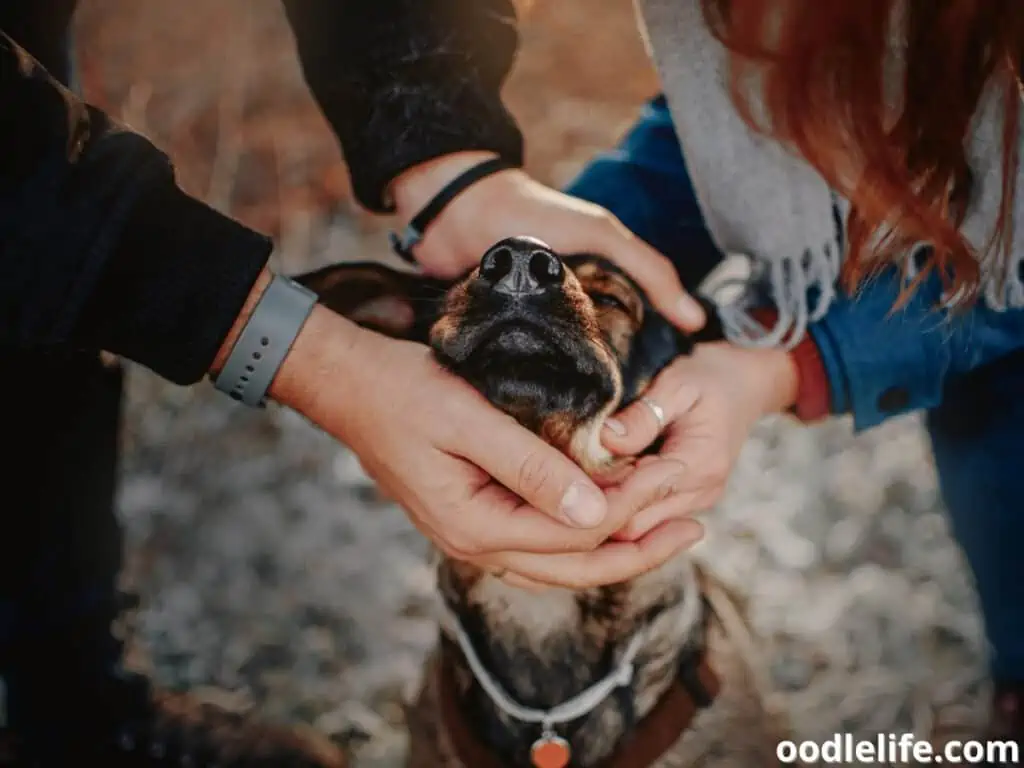
Encourage Eating
When your dog is feeling under the weather, one of the fastest ways to recover is to eat. So encourage your dog to eat by making food appealing to them.
You can try a different kibble than your pet’s usual one. You can also make safe human food for your canine, like boiled chicken breasts with some pureed vegetables like squash. These meals promote digestion and will be good for their gut.
Also, ensure that your dog always has sufficient fresh water available because hydration is critical, more than ever, when dogs don’t have an appetite for solid meals.
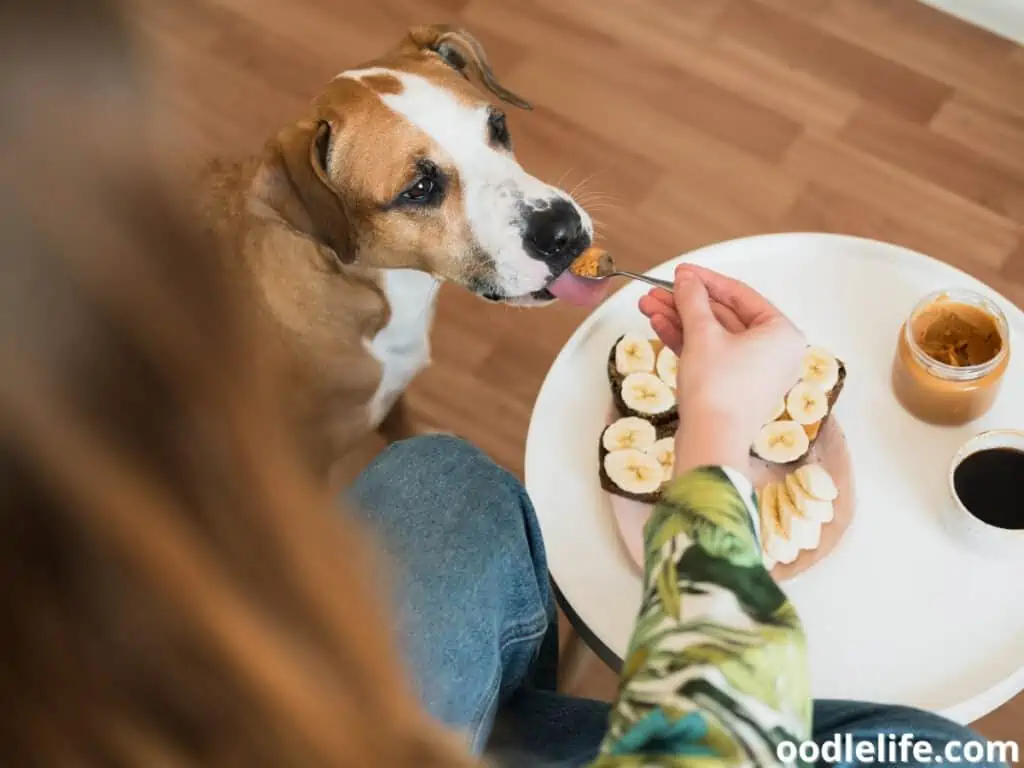
Buoy Up Drinking
If a dog is sick, even if it is willing to drink water, the pain and discomfort can take over, causing them not to drink at all. And staying without food and water poses a dangerous and life-threatening situation for your dog.
Encourage your dog to drink. Force-feeding your canine is not recommended, but try getting your dog to take in as much fluid as possible so its organ and other body functions can go on.
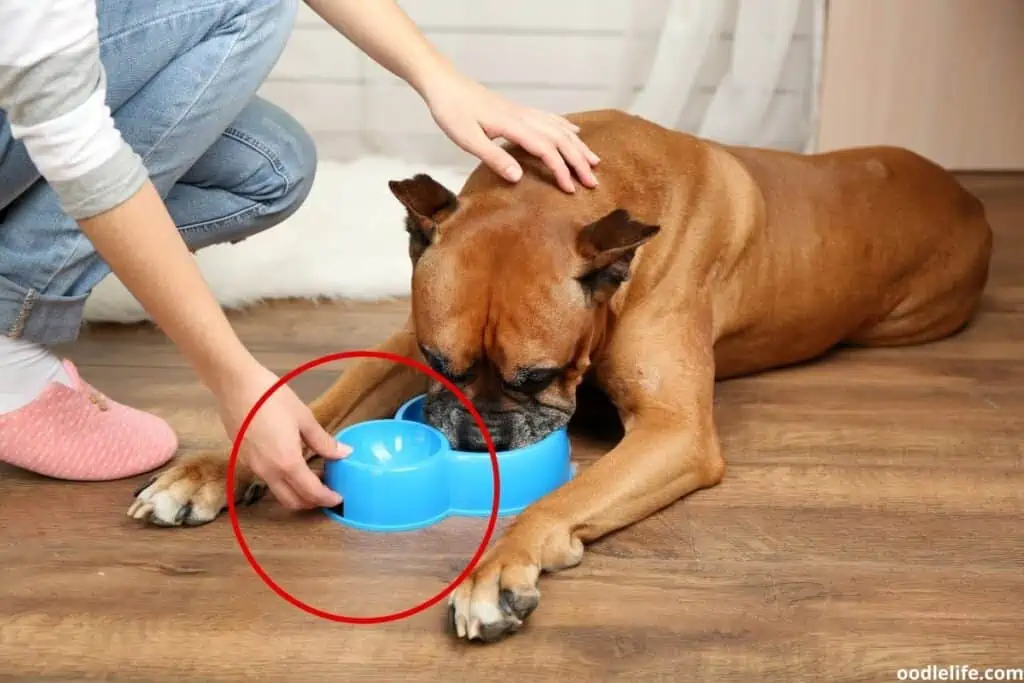
Here are some ways you can get your dog to take in some fluids:
1. Dilute Pedialyte with water following a 50:50 ratio. This new taste can spark curiosity and interest in your pet and cause them to drink. The electrolyte content of this drink helps in rehydrating your dog faster.
2. You can also serve your dog some canned dog food. These ready-to-eat foods have high water content, so it’s a massive win if your dog eats a few mouthfuls because they get solid nutrients and some liquids in.
3. Chicken broth works wonders for dogs because the flavor persuades them to drink it. It also provides that warm comfort that helps soothe any pain and discomfort.
4. Ice cubes can also work some magic because they can spark your dog’s interest to lick this “cold toy.” If you manage to get your dog interested in ice cubes, you can place several in their water bowl to encourage drinking.
If your dog stops drinking water too, on top of not eating, the deterioration of their physical health escalates. Dehydration can also lead to other medical problems like dry gums, lethargy, panting, and poor skin elasticity.
Intervene at the earliest possible time before the loss of food and water becomes too critical.
Conclusion
Your dog definitely knows its body more than you do, but if it doesn’t eat for more than three days already, head to the vet because this may simply be a symptom of a severe medical condition.
Keep a close eye on your dog and watch out for any changes in behavior aside from the lack of appetite. Do not test your dog’s physical limit in terms of survival and intervene as early as possible. Note that any treatment has a higher success rate when initiated on time.